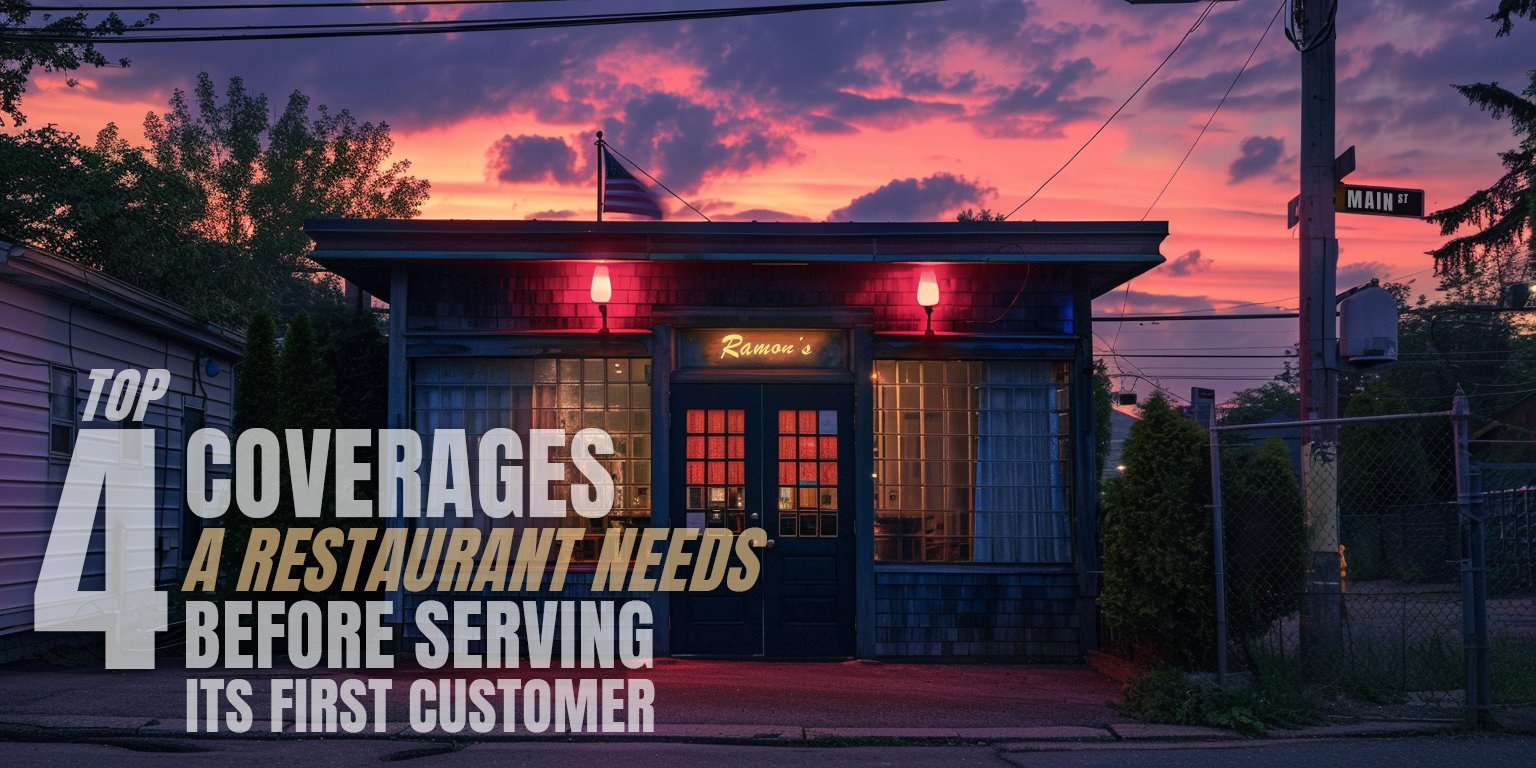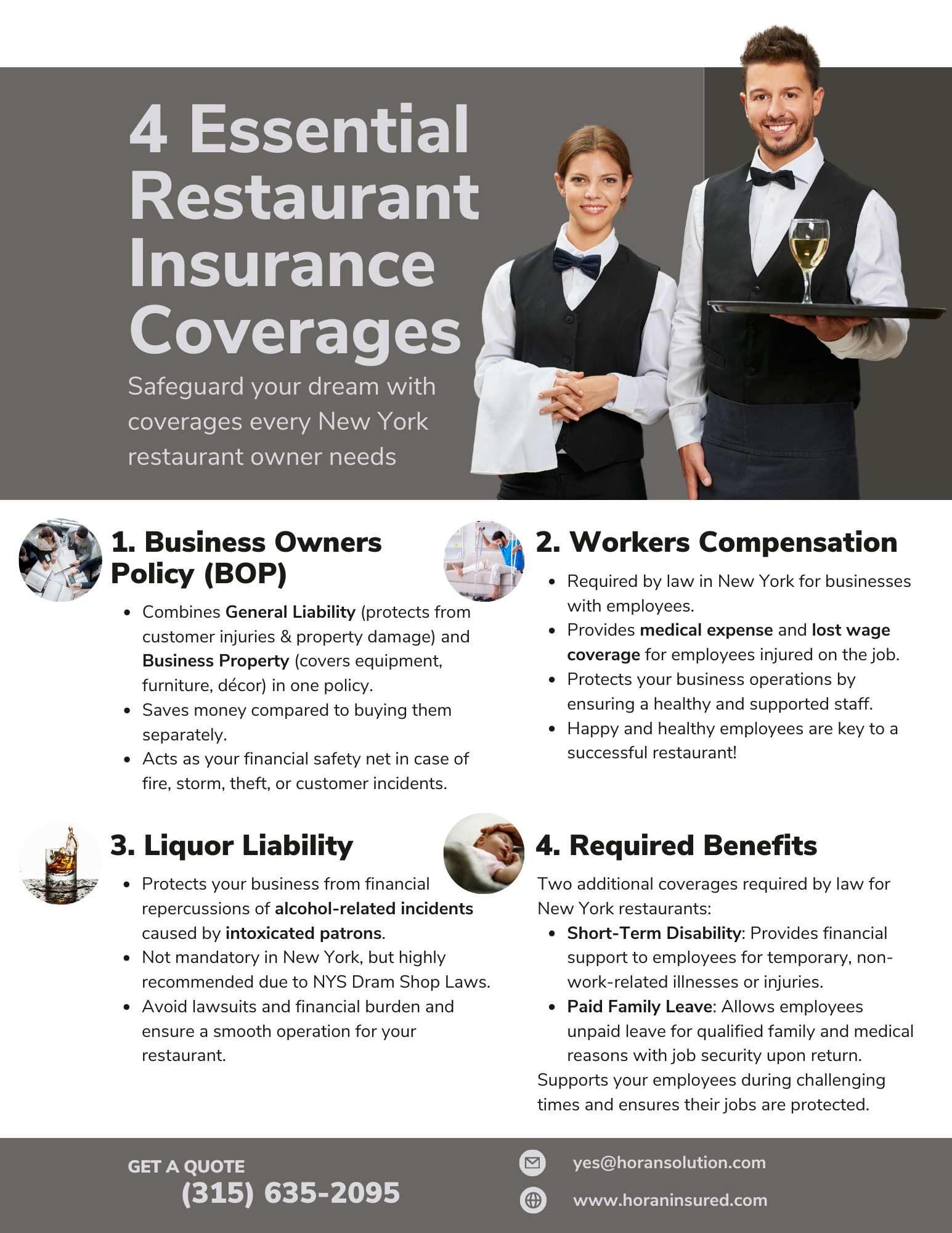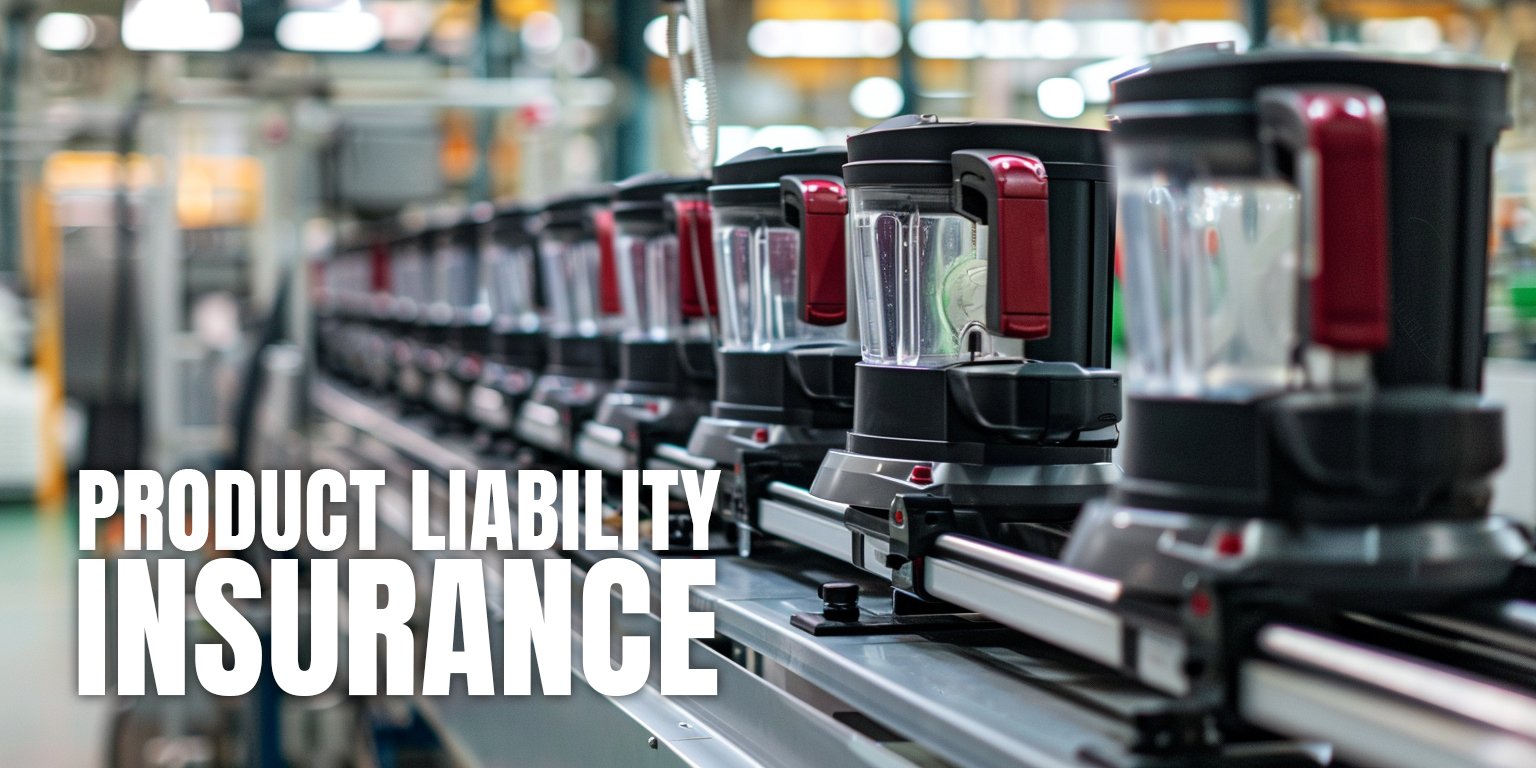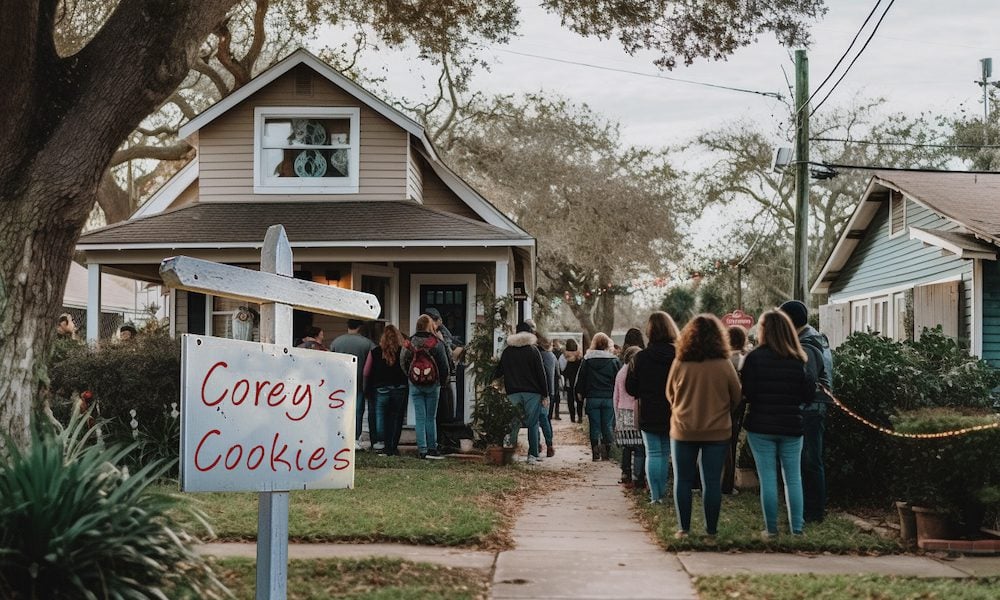Top 4 Coverages a Restaurant Needs Before Serving its First Customer
April 10th, 2024
3 min read

You’ve poured your heart and soul into your restaurant dream. From crafting the perfect menu to building a welcoming atmosphere, you’ve meticulously planned every detail. But what happens when the unexpected throws a wrench in your well-oiled machine?
A customer injury, an employee’s illness, or a liquor liability issue can quickly turn your dream into a financial nightmare.
At the Horan insurance agency, we understand the unique challenges Central New York restaurant owners face. We’re here to guide you through the maze of insurance options, ensuring you have the right coverages in place to protect your investment and your people.
This article will explore the four essential insurance coverages every Central New York restaurant needs, giving you the composure to focus on what you do best: serving up delicious food and creating memorable dining experiences.
Protecting Your Restaurant: 4 Essential Insurance Coverages
Launching a restaurant is an exciting venture. But before you welcome your first customers, it's crucial to secure the right insurance coverages. This protects your investment and ensures you can bounce back from unexpected events. Let's explore the four essential coverages every restaurant owner needs:
1. Business Owners Policy (BOP): Your Foundational Safety Net
Think of a BOP as your first safety net. It combines two crucial coverages:
- General Liability: This protects you if a customer gets injured on your property, for example, by slipping on a wet floor. It also covers property damage you cause to others.
- Business Property: This safeguards your physical assets—from ovens and refrigerators to furniture and décor. A BOP ensures you’re covered if a fire, storm, or theft damages your restaurant.
Learn more about how a Business Owners Policy functions.
2. Workers Compensation: A Legal Must-Have
In the bustling environment of a restaurant, the well-being of your employees is paramount. That’s where workers compensation insurance comes into play. It’s not just a recommendation—it’s a legal requirement for any Central New York business with employees.
This coverage is crucial as it provides financial support for medical expenses and lost wages if an employee is injured on the job.
By ensuring your staff is protected, you’re also safeguarding your restaurant’s operations, helping to maintain a seamless service that your customers expect and deserve. And a cared-for team is the backbone of any thriving restaurant.
3. Liquor Liability: Critical for All Establishments Serving Alcohol
Whether your restaurant’s menu features beer, wine, or cocktails, securing liquor liability coverage is a critical step.
This insurance is vital as it addresses the inherent risks of serving any alcoholic beverages—not just hard liquor.
It’s your shield against the repercussions of alcohol-related incidents, ensuring that an intoxicated patron’s actions don’t lead to severe financial strain on your business.
New York’s Approach to Liquor Liability
In New York State, while not a legal requirement for obtaining a liquor license, liquor liability insurance is strongly advised. The state’s dram shop laws can hold establishments accountable for damages caused by intoxicated customers.
Securing this insurance is a smart move to shield your business from possible legal actions and financial repercussions. Keep in mind, regulations can differ across various localities within the state, so it’s essential for restaurant owners to confirm the specific requirements of their area.
This allows for full compliance and security as you serve your first customer and beyond.

4. Required Employee Coverage in New York State
New York restaurants must also provide two additional types of employee coverage: Short-Term Disability and Paid Family Leave:
- Short-Term Disability: This mandatory program provides financial assistance to employees who experience a temporary, non-work-related illness or injury and are unable to work. It helps bridge the financial gap during their recovery and ensures they can focus on getting healthy without worrying about immediate lost income.
- Paid Family Leave: This state-mandated program allows employees to take unpaid leave for qualified family and medical reasons, with job security upon their return. This could include caring for a newborn child or a sick family member. It extends coverage when a spouse is deployed on active military service. It provides financial support for employees facing personal situations while ensuring their job remains available.
Learn more about Short-Term Disability/Paid Family Leave.
Secure Your Restaurant’s Future with Essential Coverage
Owning a restaurant is a constant dance between passion and responsibility. The right insurance won’t eliminate every risk, but it can prevent a single incident from derailing your dream.
Imagine a busy Friday night. The kitchen hums, laughter spills from tables, and you survey your creation with quiet joy. Suddenly, a foot caught in a table leg sends an elderly customer tumbling. With proper insurance, you can focus on their well-being, knowing you have a safety net in place.
Don’t let a preventable setback become a defining moment. Click the Get a Quote button below.
We’ll help you navigate the complexities of restaurant insurance, so you can get back to what matters most: creating a haven for Central New York’s food lovers.
Daniel is an accomplished content creator. He has been working in publishing for almost two decades. Horan Companies hired Daniel as its content manager in November 2022. The agency entrusted its messaging to him. Since then, Daniel has written insurance articles, service pages, PDF guides, and more. All in an effort to educate CNY readers. He's helping them understand the world of insurance so they can make informed decisions.
Topics:




























